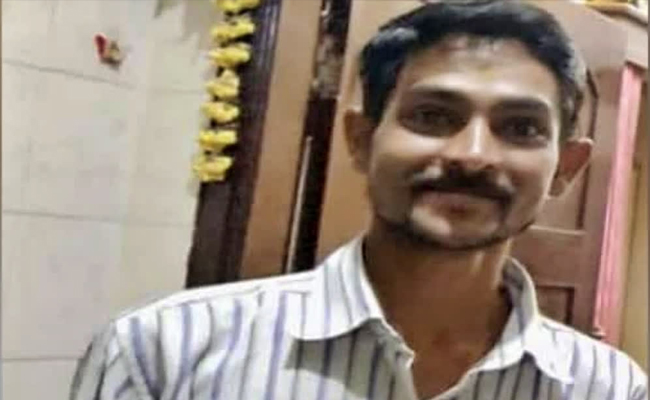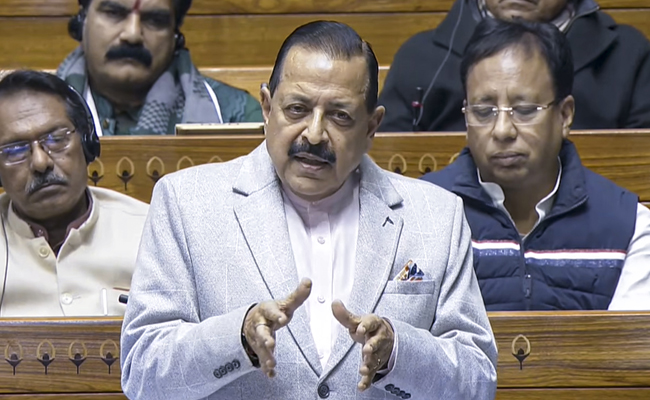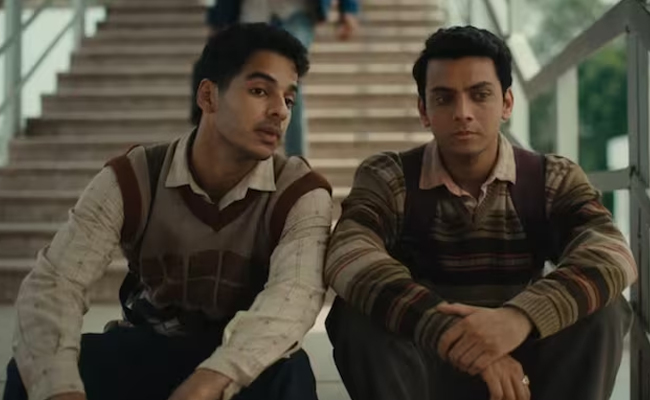Bengaluru (PTI): The Karnataka police, probing the Renukaswamy murder case, has said Kannada film star Darshan Thoogudeepa had contacted several individuals soon after the alleged killing, while another accused has confessed that the victim was administered electric shock.
Aimed at escaping from "adverse legal actions" against him and meet the expenses to "cover up" the conspiracy and destruction of evidence, Darshan, accused number two in the case, had taken Rs 40 lakh from a friend, and the money has been recovered, they said.
Police have shared an update on the investigation in the remand application filed by the police before the 24th Additional Chief Metropolitan Magistrate (ACMM) court on Thursday, when they sought police custody of Darshan and three others, and judicial custody for his friend Pavithra Gowda, and remaining accused.
A total of 17 people including, Darshan and Gowda, are accused in the murder case.
According to police sources, Renukaswamy, a fan of the actor, had sent obscene messages to Gowda, which enraged Darshan, allegedly leading to his murder. His body was found near a storm-water drain next to an apartment in Sumanahalli here on June 9.
Police have said that the 47-year-old actor and other accused -- Dhanraj D, Vinay V and Pradosh -- did not cooperate with the investigation and tried to hide facts.
The court on Thursday extended the police custody of the four by two days till June 22. The rest were remanded to judicial custody.
Police have identified Pavithra Gowda, who is accused number one, as the "major cause" for Renukaswamy's murder, stating that it has been proved from the probe that she instigated other accused, conspired with them, and took part in the crime.
It has been found from the available evidence that Darshan is involved in the crime, using his money, other accused and his fanbase, and has misused the law of the land, they said.
During the probe, Dhanraj (accused number 9), in his voluntary statement, told police that he assaulted Renukaswamy and used the 'electric shock torch' to administer shocks to the deceased victim. The device has been seized by the police.
"He has not revealed from where he obtained the device and is hiding the information. He has to be probed further," police said.
As per police, Darshan had contacted several people after the crime, and inquiry needs to be done in his presence to ascertain the motive and reasons behind it.
There were some reports that a few influential people had tried to interfere in the probe, which however, was rejected by the police.
Darshan, in his revised statement, admitted to obtaining Rs 40 lakh from his friend Mohan Raj for escaping from adverse legal actions against him and to cover up conspiracy and destruction of evidence, according to police.
ALSO READ: Actor Darshan borrowed Rs 40 Lakh to destroy evidence in Renukaswamy murder case: Police
The police said they have recovered Rs 37.4 lakh from Darshan's house and Rs 3 lakh that he had given to his wife.
Accused Pradosh played the main role in the destruction of evidence and has not been cooperating with the investigation, and is hiding information, police said. He had taken another person to the crime scene and has not revealed the identity of that person. "He needs to be probed further."
Pradosh is also said to have thrown the mobile phones of the victim and accused number 4 -- Raghavendra in the "drainage," and efforts made to recover them have not yielded result.
Police have recovered Rs 4.40 lakh from Raghavendra's residence in the district headquarters town of Chitradurga. They have also recovered the victim Renukaswamy's gold ring and chain from Raghavendra's residence. Renukaswamy's mother has identified the recovered gold ring and chain.
According to sources, Raghavendra, who is part of Darshan's fan club in Chitradurga, had brought Renukaswamy to a shed in R R Nagar here, on the pretext that Darshan wanted to meet him. It was in this shed that he was allegedly tortured and killed, a police official said.
The investigation team is believed to have gathered enough evidence including CCTV footage, which could establish that Darshan was present during the alleged assault on Renukaswamy, leading to his death, sources said.
"From the spot of the crime, things such as lathi, wood pieces, also water bottle, blood stains and material evidence, DVR containing the CCTV footage have been recovered," the official had earlier said.
According to the autopsy report, Renukaswamy's death was caused due to shock and haemorrhage as a result of multiple blunt injuries he sustained, the sources added.
Let the Truth be known. If you read VB and like VB, please be a VB Supporter and Help us deliver the Truth to one and all.
New Delhi (PTI): Lok Sabha on Wednesday passed the nuclear energy bill with Union minister Jitendra Singh asserting that it would help India achieve its target of 100 GW atomic energy generation by 2047.
The Sustainable Harnessing and Advancement of Nuclear Energy for Transforming India (SHANTI) Bill, which seeks to open the tightly-controlled civil nuclear sector for private participation, was passed by voice vote amid a walkout by the opposition.
Singh termed the bill a "milestone legislation" that will give a new direction to the country's developmental journey.
"India's role in geopolitics is increasing. If we have to be a global player, we have to follow global benchmarks and global strategies. The world is moving towards clean energy. We too have set a target of 100 GW of nuclear energy capacity by 2047," he said.
The opposition contended that the bill diluted provisions of the Civil Liability for Nuclear Damage Act, 2010 that passed on the liability for a nuclear incident on to the suppliers of nuclear equipment.





